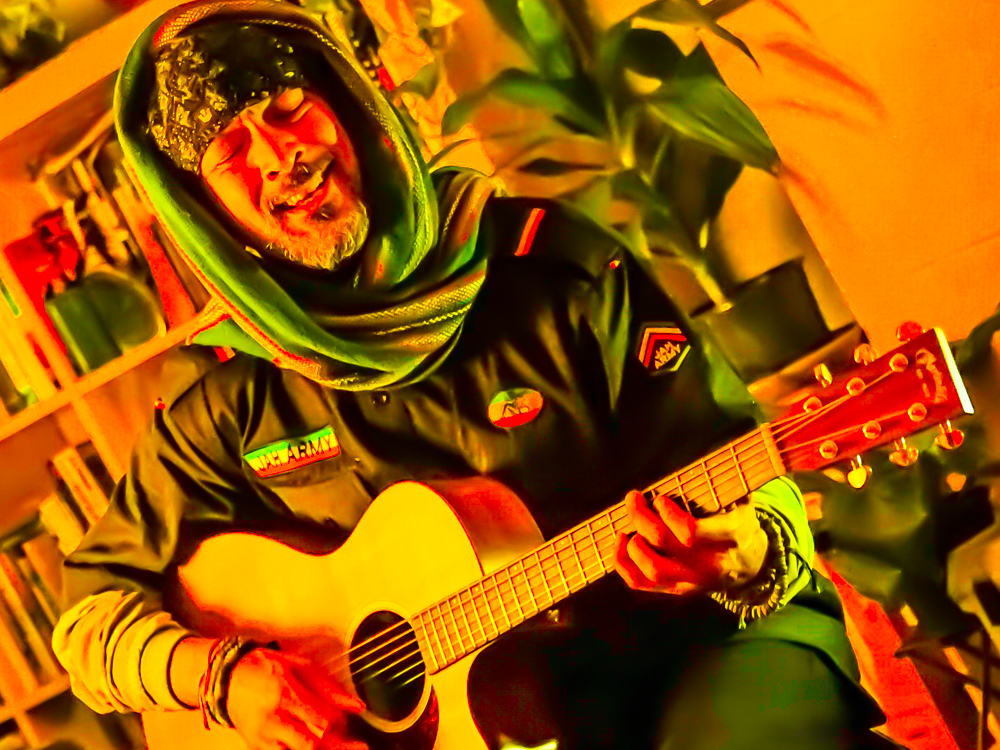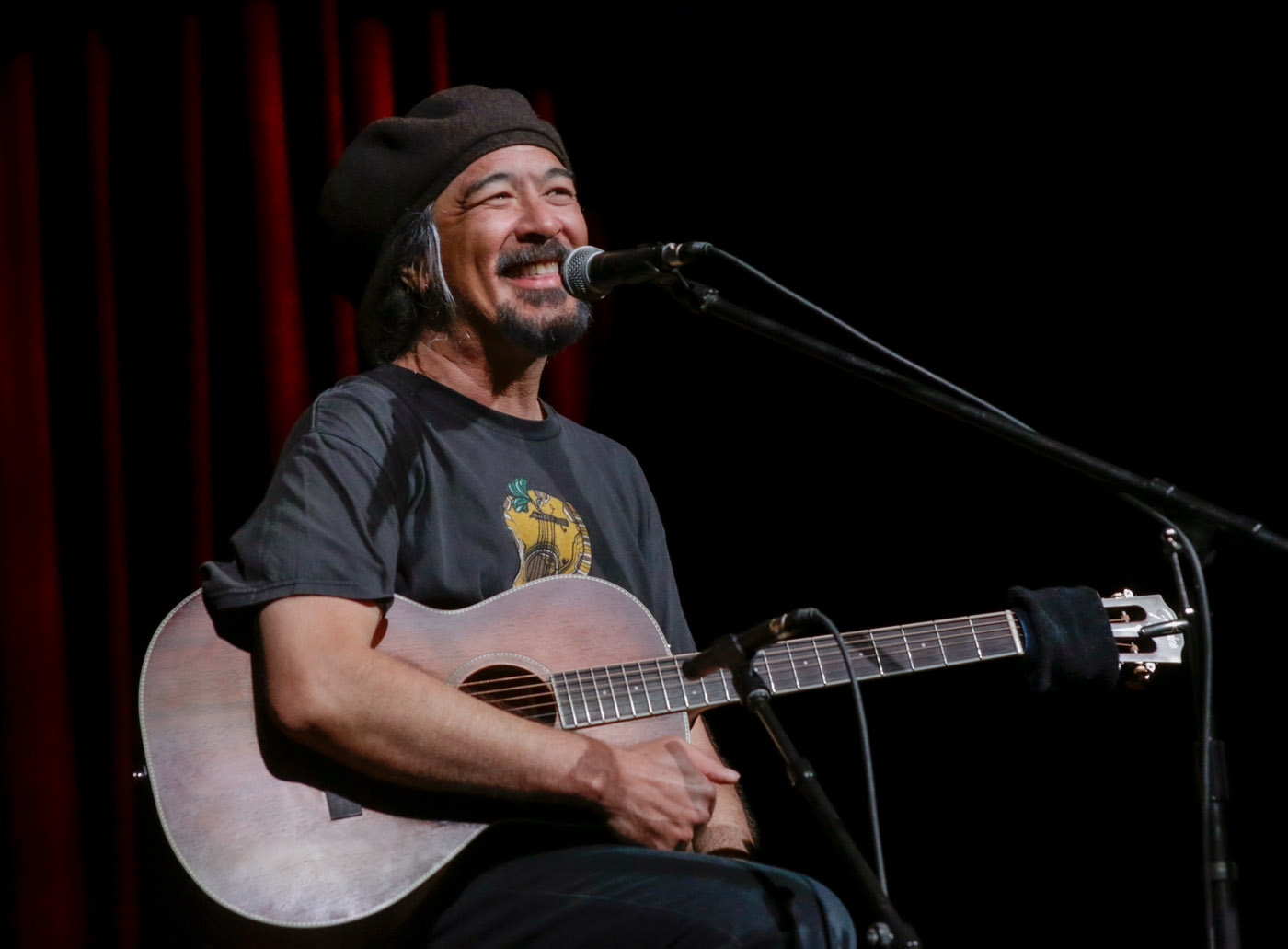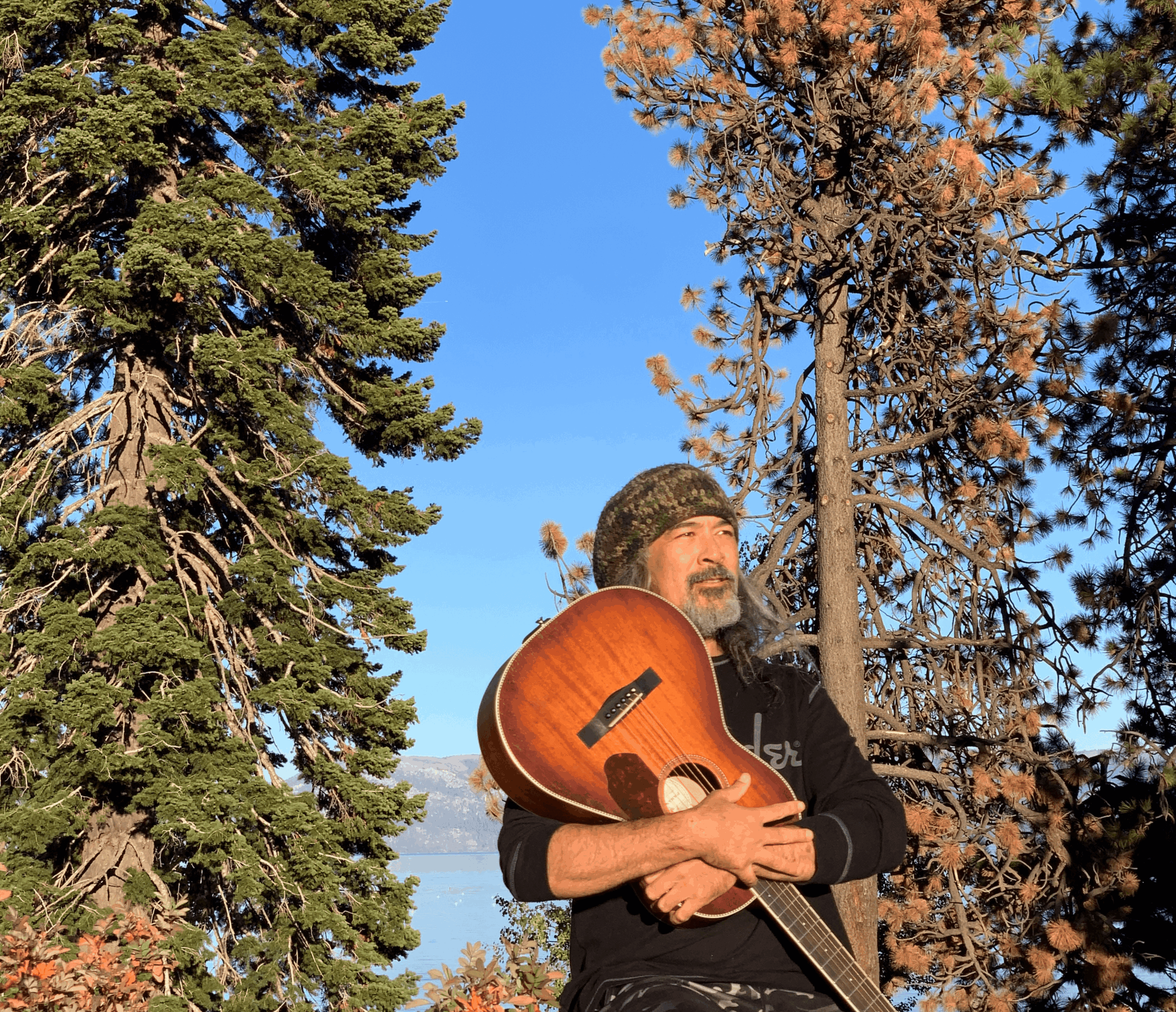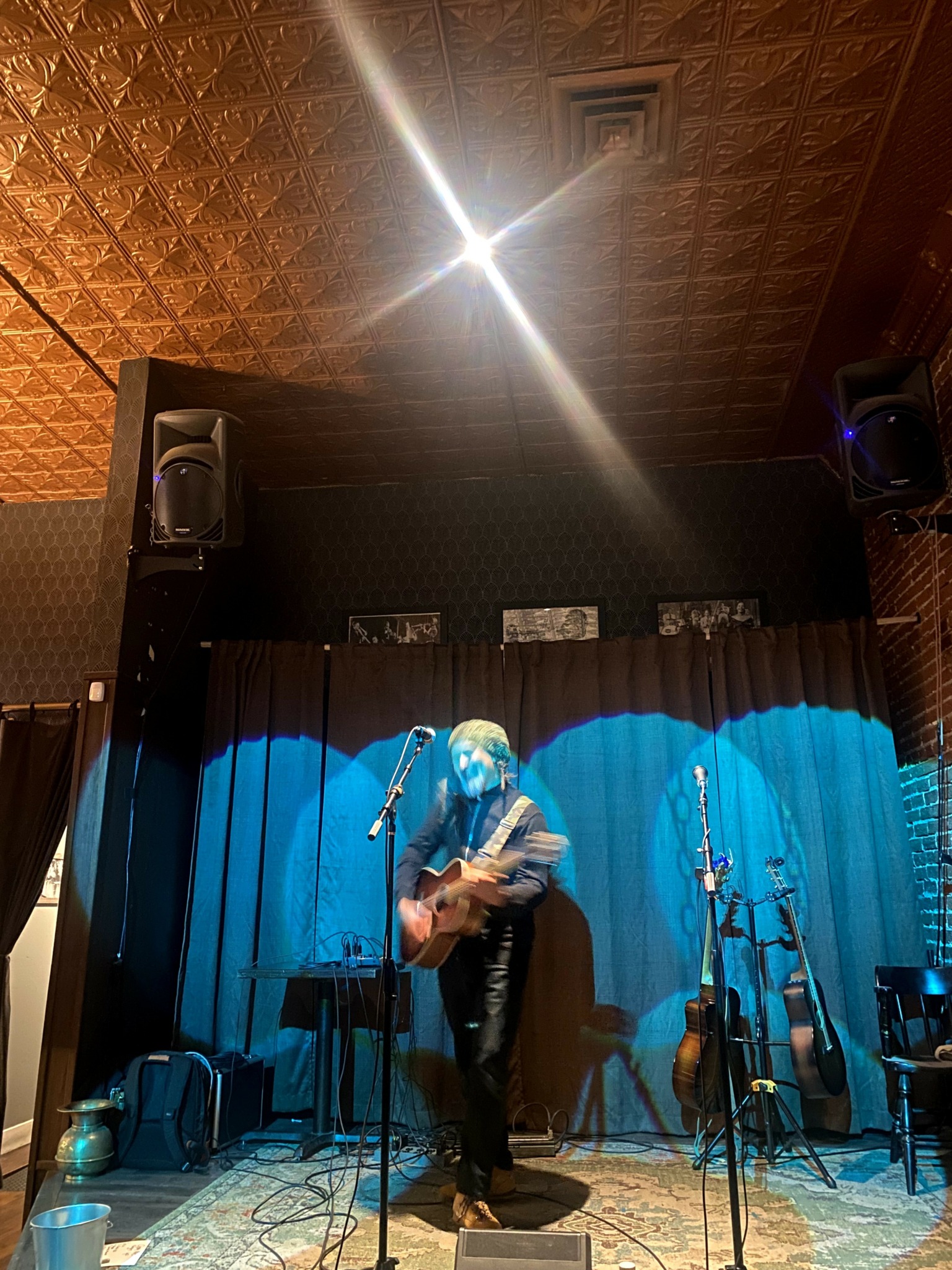We’re excited to introduce you to the always interesting and insightful Anthony Postman. We hope you’ll enjoy our conversation with Anthony below.
Anthony, thanks for joining us, excited to have you contributing your stories and insights. Earning a full time living from one’s creative career can be incredibly difficult. Have you been able to do so and if so, can you share some of the key parts of your journey and any important advice or lessons that might help creatives who haven’t been able to yet?
I have been teaching music for 28 years; mostly as a guitar instructor, but also teaching some bass and piano. I have been fortunate to be able to make my living in music, sharing what I love with the masses. In the best of times, I saw 30-40 student a week, teaching at one of Reno’s old (now gone) local stores. At the same time, I was playing in bands and DJing, keeping well-bust with this array of pursuits. Most of the local bands are really only making enough for some side-cash. At times, I held as many as three DJ residencies, including hosting specialty music programs on public radio.
Before most of this varied music work was really rolling, I was doing a lot of maintenance work for a local design firm, readying apartments for rent; doing grounds-work and errands for the firm. I was perusing want ads searching for new employment when I saw the listing for music instructors—I knew it was the fit for me! To work in music was all I ever wanted.
I’ll never forget day one, as Reno had flooded, and many of the north-south roads that I would usually take were inundated. I called in to see if they wanted me there, and was told, “if you can make it, we would love for you to start.” There was one roundabout way that I could tak, and I made that journey on New Year’s Day, 1997.
Through most of my years teaching, I also wrote features for a niche publication (Reggae Festival Guide), and I eventually became the editor and photographer for the magazine. So all in all, I made my living: teaching, playing in bands, DJing, writing, photographing and editor-ing.
These days, teaching has slowed immensely. But my move has been towards music production, mixing and mastering—both for myself and for clients. I have been pivoting to move more solely into music creation, and deepening my own path as a musical artist.

Anthony, love having you share your insights with us. Before we ask you more questions, maybe you can take a moment to introduce yourself to our readers who might have missed our earlier conversations?
Like many in the musical space, I do have some university under my belt, but I did not complete a degree. During my university years, I had a band that was playing out a lot, and we were getting great consistent gigs and local notoriety. The gigs were helping supplement life in school and working restaurants—and keeping us out till the almost dawn (this is Reno/Tahoe gigging, back in the day!) regularly. I missed more and more school, and finally decided that I wanted to take a break, and just work and gig.
Through some of the more laborious work, I found my station teaching in the local want-ads; and my life changed from then, working in the field, teaching face-to-face with students. At first, I was pedagogic with my approach, a largely one-size-fits-all methodology. This worked well for many, especially the predominance in the late ’90s of guys, mostly men who wanted to learn lead guitar, how to shred. As the years progressed, more and more came who “just wanted to learn songs.” More women and girls, too. (I first learned about Taylor Swift through some of my girl students that were wanting to play her songs.)
I adjusted to meet people more where they were at. One of my early requirements (in the streaming era, especially) is to have students create playlists: at least 10 or so songs that turn them on. We usually find there is a song or two there that they can climb into early-on. I am sooo much more about them now, as opposed to what I think they need. For many, if you only give them what they need, instead of what they want, they will leave. For those more dedicated, we can also get into “what they need,” i.e.- musical theory, reading notation, etc. The improvisors appreciate that some theory is needed for the task. (Songwriters, too.)
Now, my work (especially as I get my music mixing and mastering business off the ground—and in the teaching, too) is really focused specifically on the client, getting them to sound their best. Whether it is to get onstage as a performing artist (I have been lucky to work with many of our region’s performers and songwriters); or to get their recorded music out to the world, it is all about making them shine.
To do this means diving into influences: who inspires students and clients? And especially in regards to mixing clients: who are they listening to? And what can we use for direct references to inform our work together; to create an objective target for how the finished work should sound.

Is there mission driving your creative journey?
My mission in life and music is to connect—first myself, and then of course my audiences—to that which is divine and beautiful in life. To recognize that we are all part of a sublime mystery and miracle; that we are all part of a grand clockwork that is at once magnificent and subtle. My intention is to inspire a sense of possibility, hope: that even through the darkest times and challenges, flowers may still sprout from cracks within broken concrete. We rise.
And as music has always been a place where I’ve been able to seek, find, and build community, I rejoice in sharing and spreading that to my listeners, students, clients, and fellow musicians, writers, and aficionados. Music as both the figurative and literal spaces where we can come together to meet, commune, and celebrate our shared humanity. The strength, resilience and support that I have found through music can be amplified and shared throughout the community, far beyond my singular experience. Through music and our expression, we may find resilience in times of challenge and struggle. As we explore and delve to find the creative expression, we find truth within ourselves; and may grow to speak truth to power.

Have you ever had to pivot?
My story of pivot began prior to the pandemic. Like many musicians, I had my eggs in numerous baskets, so that something was always hatching: playing as a backing musician for other artists, DJing residencies and special events, photographing shows and festivals, and my mainstay: teaching. But my ultimate pivot (and one that is still a work-in-progress) is to become a full-stack (producing, mixing and mastering) artist and sound engineer.
Starting in about 2018, I began to narrow my focus more singularly into my own songwriting and musical production; and performing as a solo acoustic singer-guitarist. I had gotten some tinges of dissonance as I was DJing and photographing shows; realizing that I was shining a lot of light onto the music others had made, and performances I was watching behind my lens—the focus that I was bringing to so many artists was indeed the focus that I wanted give myself. To step out from the DJ booth, from the camera lens, and from the backing role, and take center stage: I have my own music and message to share!
Lockdown helped right this long-term pivot into place, with that temporary end to all live events. While I had already began saying “No” to some of the work that I had loved for 20+ years, COVID emphatically finalized those “No”s. Through the pandemic, I was fortunate to keep my lights on teaching music lessons on Zoom. In that crazy time for humanity, I feel doubly fortunate to have been one of those blessed and lucky enough to have been working from home—something I do not take for granted, and give thanks and gratitude for, every day.
With the immense amount of time before me (another blessing!), I decided to re-train and up-level in the two areas of my greatest musical interests: songwriting and musical production/sound engineering. I had studied both before, but what better time could there be to dive-in and keep deepening both aspects of my craft? After 20+ years of teaching, to turn my own tables, and once again become a student, was a welcome opportunity. As a 50 year-old musician, I wanted (and still do) to learn as much as possible to assist my creative and professional journey. In this quickly moving world, I don’t feel the need to invent my own wheel!
I entered The Songwriting Academy [TSA] to hone my writing, and there, had the chance to work with top-level writers and producers as my mentors—people who have worked with some of the biggest names in the music industry. Receiving weekly mentorship and guidance from the TSA instructors was invaluable. The importance of hope, encouragement and guidance from the mentors to stay the course was in and of itself worth the tuition! To have light shined upon my work and abilities was nourishment in those days of locked-down isolation.
As much as working with the mentors helped to elevate my writing and thinking regarding artistry, my fellow students also were the treasure of the TSA experience. We were greatly encouraged to collaborate: collab, collab, collab. I had done six or so co-writes prior to my year in TSA; and came away with dozens more (now about 30 to-date, including some writes from other intensives). Co-writing was an amazing place (via Zoom) to plug-in with like-minded hearts and souls. To talk about our emotions and experiences, present and past; our hopes and dreams. To commune within that locked-down world. To put it all into song. Alchemy was happening. And friendships forged, which are still active today.
I came out of the pandemic with a new body of work, and a good number of recorded demos, from which I am now producing a full length album (more on that below). And coming out of the pandemic, a major victory lap for me was to open, solo-acoustically, for Stephen Marley; playing many of the tunes written through the pandemic; for an audience that is indeed my audience—although I am not a strictly-reggae artist, I do have a through-line of social and environmental consciousness in my writing: and my set was well-received!
Speaking of the demos, and the production/engineering side of things, a program that I entered in 2020, ( Mastering.com ) joined forces with another production program that I was in (Musician On A Mission) to become an immense full-stack training program (The Reverse Engineer [TRE]). TRE also features robust mentorship, with deep and detailed feedback on our mixes and projects. And offering education that is both granular (especially useful in the detailed arena of audio work) and sweeping (apt for mindset, and catching so many of the interests and concerns of the active TRE community). Through my years in TRE, I have improved my ears (THE most important tool for audio engineers!) and my mixes. Through TRE, I am also involved in guided mentorship for professional development, as I get my mixing/mastering business off the ground.
Flashing forward to now, I am currently in production on my first full-length solo album. I was awarded a project grant from Nevada Arts Council to help move this work forward. And though most of the grant covers paying fellow musicians for my project, it is also creating accountability, a deadline; and the impetus to give this production the lion’s share of my focus—something somehow I had never afforded myself to do!
Perhaps in the process of doing all the things we may do, saying “Yes” most of the time to most of the asks and opportunities, we sometimes miss out on, or simply don’t prioritize what may have been the “big-dream” all along. Many pursuits may be “in the field,” but not the thing itself. And now, through this roughly seven-year pivot (is it still a pivot if it takes seven years? or is it more like turning an immense barge?) I am finally doing “the thing,” and pretty much only “the thing.”
I still teach a small handful of students; and now do a couple of live-sound gigs as well. I am mixing an album for a client, and have done a handful of singles for other artists. As I continue production on my album, I will also be building my client base for mixing and mastering, a task that will rely heavily on reaching out to artists, and building relationships—to show (as I do with my students) that the work isn’t about me. It’s me doing my best to make *them* shine. To bring their artistic vision to life.
I am most excited about my upcoming album. More than anything, it will be the culmination of years of writing, production, living and learning. Feeling all of the feels. My first artistic statement as a solo artist to share with the world. From it I know new opportunities will arise to open in my own creative, professional and personal journey.
Contact Info:
- Website: https://www.mercurycalling.audio/
- Instagram: https://www.instagram.com/anthonypostman_mercurycalling/
- Facebook: https://www.facebook.com/AnthonyPostmanMusic/
- Youtube: https://www.youtube.com/@anthonypostman
- Soundcloud: https://soundcloud.com/anthonypostman
- Other: https://open.spotify.com/artist/0UZ38IRHiHvZc8RNais3p6?si=siZ4nGhHS3uRhdRZbT3dyg

Image Credits
#1) Sabrina Moberly
#2) Douglas Hooper
#3) Eloise Shoong
#4) Kasey Christensen


